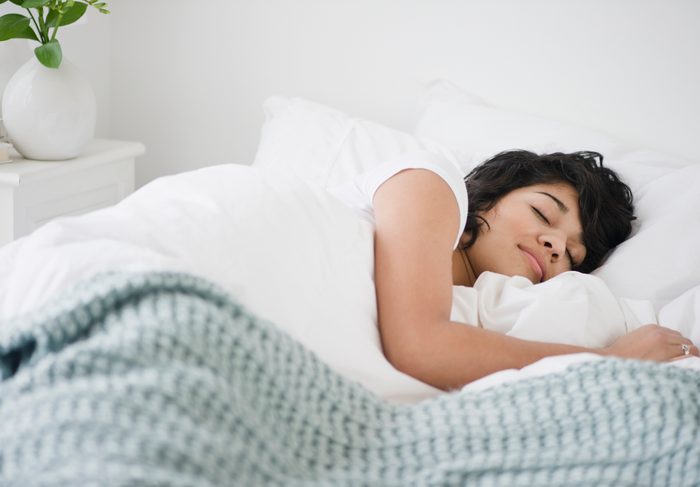
How to get deeper sleep
You’re trying to get a good night’s sleep. You pour your last cup of coffee for the day approximately five minutes after you get up in the morning and you go to bed at a “decent” time to get the recommended seven to nine hours of sleep. Yet, you still find yourself tossing and turning unable to fall asleep.
Our health experts delve into the reasons why you’re unable to get deeper sleep at night and how to improve your overall sleep habits. (Here’s what’s considered a “normal” amount of sleep.)
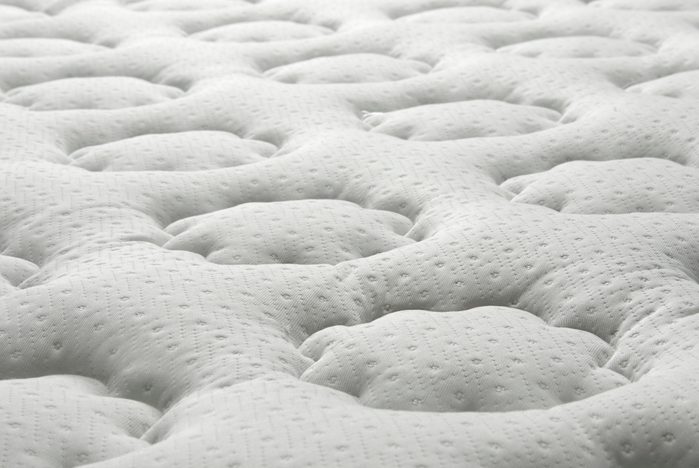
Rethink your mattress
“You don’t need a really expensive mattress or one with a lot of space-age bells and whistles. There’s really only one good study on mattresses, and it confirmed the Goldilocks theory: Most people prefer a mattress that’s not too hard and not too soft. So look for something medium firm.”
— Andrew Hecht, MD, orthopedic surgeon and co-chief of spine surgery at Mount Sinai Medical Center, New York City
“If you can, try the type of mattress you’re considering in a hotel or at a friend’s house. Some stores may even let you sleep on it for a night. Some mattress companies will also give you a full refund if you don’t like it after a month.” — Maxwell Gillingham-Ryan, cofounder of Apartment Therapy
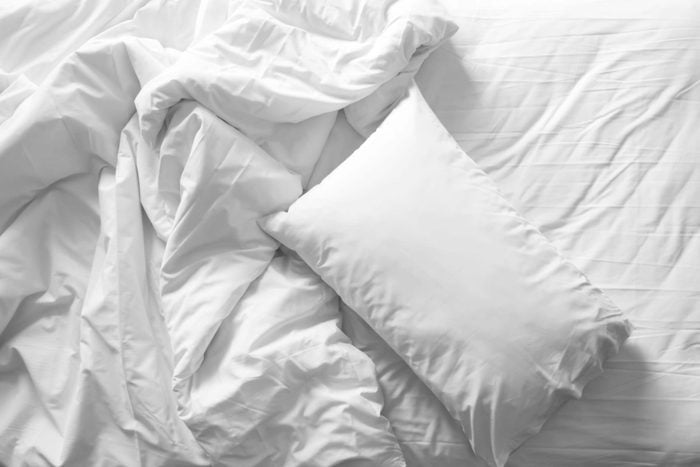
Stick to one pillow
“I’m not a fan of sleeping with two pillows if you’re back sleeper because it makes your upper back curve and strains the neck and back. If you need to sleep up high for medical reasons, get a wedge and put your pillow on it.” — Karen Erickson, chiropractor, New York City
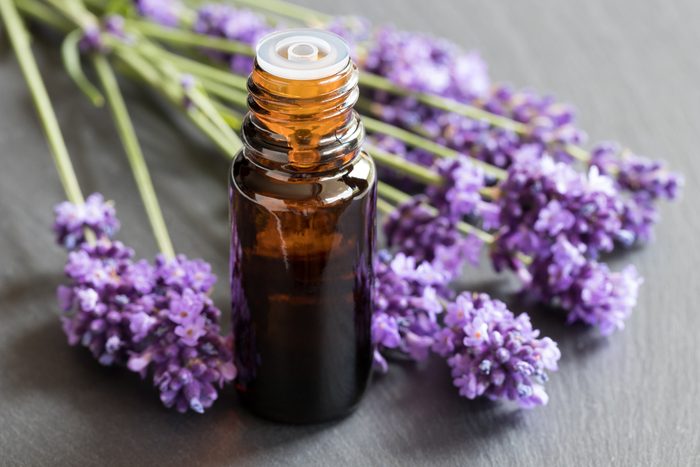
Nod off with the right scent
“My research has found that any new smell, even one associated with relaxation, like lavender, can make you feel more alert and vigilant. You’re better off with a scent that makes you feel safe and comfortable. There really is something to cuddling up with your spouse’s undershirt.” — Pamela Dalton, PhD, odor-perception expert and sensory psychologist at Monell Chemical Senses Center, Philadelphia Check out which essential oils are recommended for sleep, and which to avoid.
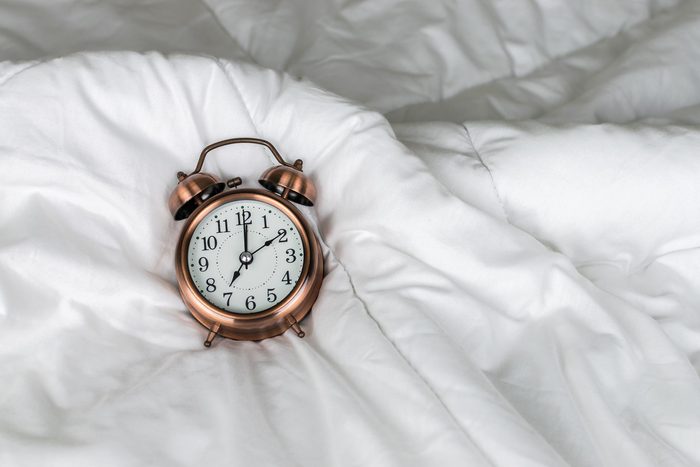
Don’t harp on your number
“We expect to sleep for eight solid hours, but that’s actually not normal compared with global populations and our own evolutionary history. People naturally wake up two or three times a night. It’s worrying about it that’s the problem.” — Carol Worthman, PhD, anthropologist at Emory University, Atlanta. Check out these sleep quotes for people who love to snooze.
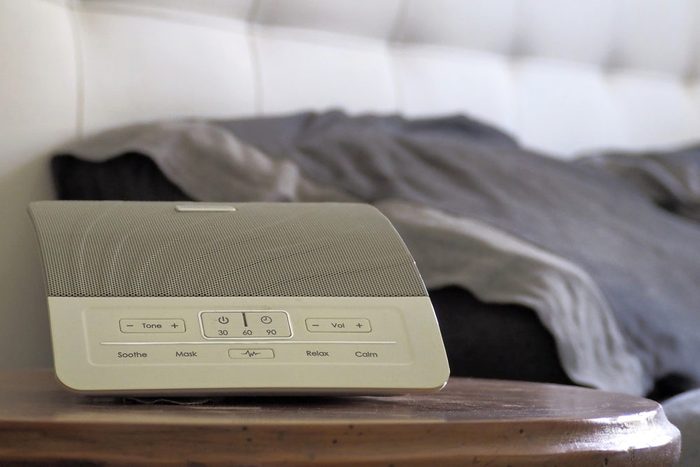
Make sleeping pets lie
“You may not need a white noise machine, but your dog might. A lot of dogs are very sensitive to noises outside, like other dogs barking or neighbors coming home late. A white noise machine or fan will drown out the noises that are keeping your pet up, which will keep your pet from waking you.” — Tracey Schowalter, pet training consultant at Puppy Adept, Gainesville, Georgia
“Dogs sleep when they’re bored. If you keep them awake during the day, they’re more likely to sleep at night.” — Kathy Diamond Davis, author and dog handler, Oklahoma City

Avoid tummy trouble
“If you’re not sleeping well, you may have acid reflux, even if you don’t feel heartburn. Try elevating your head by putting blocks under the top of the bed and sleeping on your left side. Or you can take a dose of Gaviscon [an over-the-counter remedy that creates a protective barrier against stomach acid].” — Patricia Raymond, MD, gastroenterologist, Virginia Beach

Take a slumber-triggering supplement
“Low magnesium is associated with irritability and jumpiness. It’s also known to cause chronic inflammatory stress, and insomniacs often have chronic inflammatory stress. So it’s possible that taking a magnesium supplement—100 to 200 milligrams a day—will help with sleep.” — Forrest Nielsen, PhD, research nutritionist at the USDA Grand Forks Human Nutrition Research Center, Grand Forks, North Dakota. Find out if taking CBD for sleep could help you get more shut-eye.
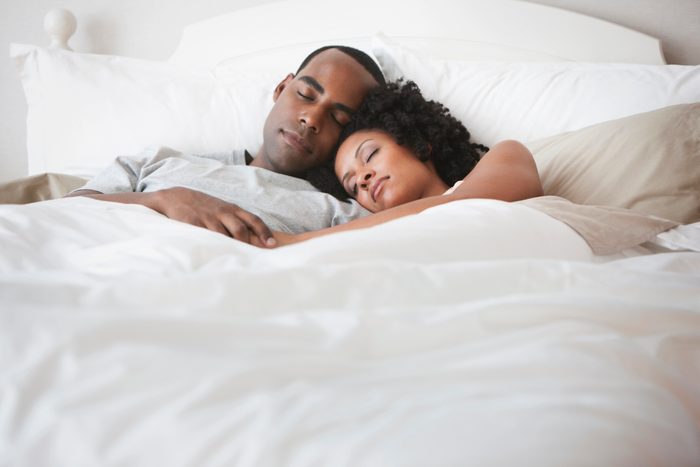
Learn to share
“If you like a firmer mattress and [your partner] likes a softer one, you don’t have to compromise. Get two singles, push them together, and use king sheets. Or you can buy a strap that attaches the mattresses to each other.” — Alan Hedge, PhD, professor of ergonomics at Cornell University, Ithaca, New York
“One of the biggest disrupters of sleep is the pulling and tugging of sheets and blankets. I tell couples that each person should have a sheet and blanket. If you pull a big comforter or duvet over the top when you make the bed, you really can’t tell. Couples call me after I suggest that and say, ‘Wow—you changed our marriage.’” — Robert Oexman, chiropractor and director of the Sleep to Live Institute, Joplin, Missouri
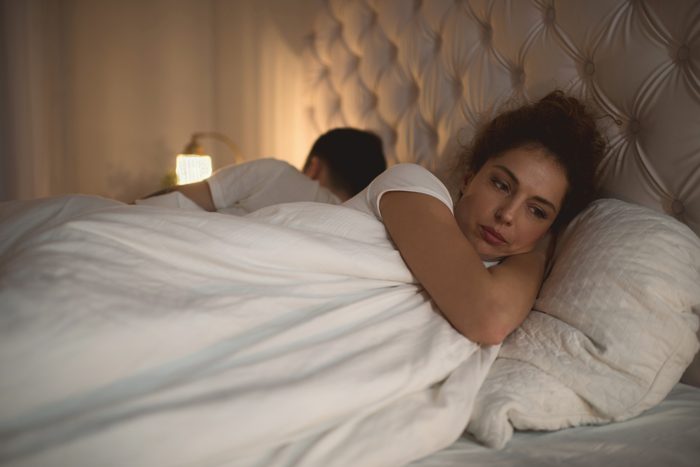
Go to bed angry
“The classic line is that you shouldn’t go to bed angry, but that’s sometimes impossible. If you’re lying in the same bed but mentally throwing darts at each other, go to sleep on the couch.” — Jeffrey Sumber, psychotherapist, Chicago
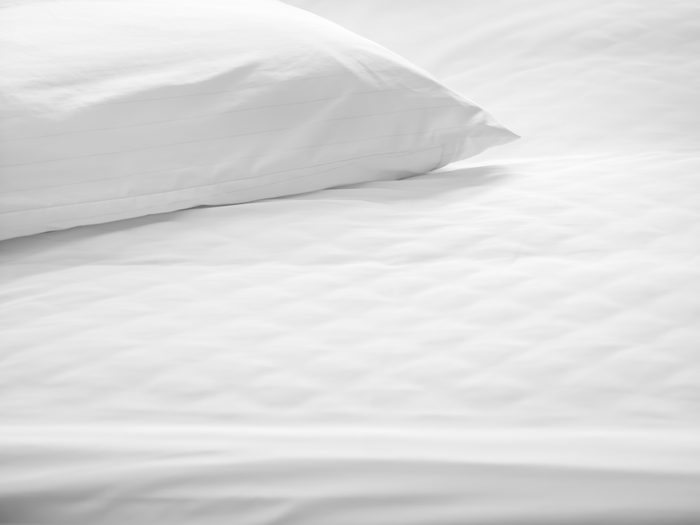
Be smart about allergies
“Pillows and bed coverings advertised as ‘hypoallergenic’ aren’t necessarily worth buying. That just means a product is made out of a substance you can’t be allergic to, not that it prevents allergies. Instead, get dustmite-proof covers for your pillow, mattress, and box spring.” — Jacqueline Eghari-Sabet, MD, allergist, Gaithersburg, Maryland. (These are the hypoallergenic pillows that allergists trust.)
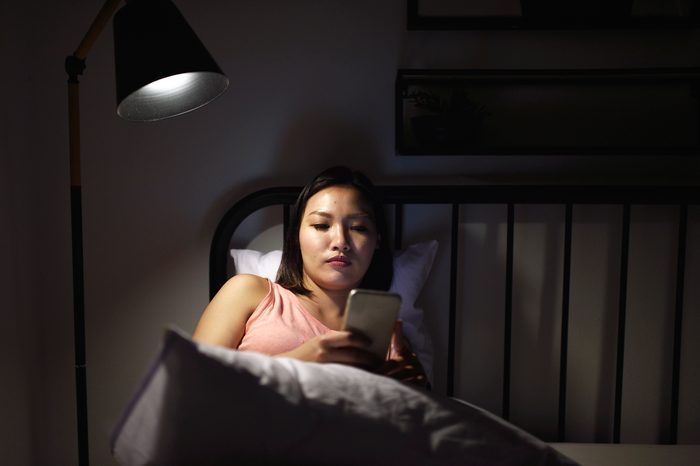
Avoid technology
“The cooler white and blue light emitted by a computer monitor stimulates brain activity and makes it difficult for your brain to wind down. Download the software at stereopsis.com/flux. It gradually dims your screen at sundown, shifting your monitor’s colors to warmer red hues.” — Colin Grey, time-management coach, London. (Find out if using red light for sleep can help improve your shut-eye.)
“Watching TV at night may seem relaxing, but it beams light into your eyes, which is an ‘alert’ signal for the brain. Read a book before bed instead.” — Tara Brass, MD, psychiatrist, New York City
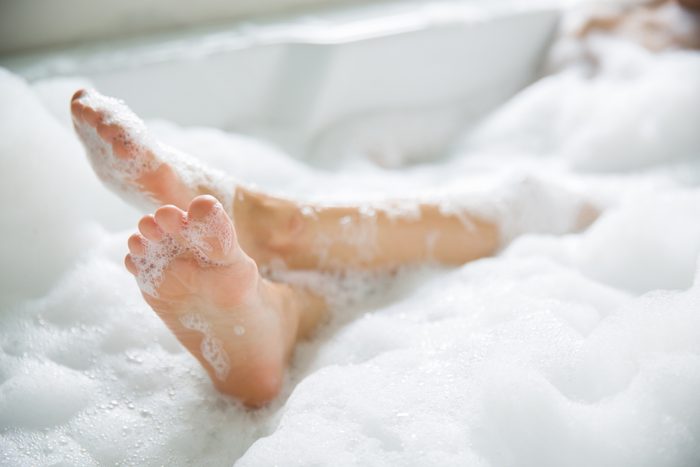
Cool down your room
“A hot bath will increase your skin temperature, which eventually decreases your core body temperature. Do the same thing for yourself that you’d do for a young child—make sure you take a bath a half hour or so before bed time.” — Robert Oexman, chiropractor and director of the Sleep to Live Institute, Joplin, Missouri
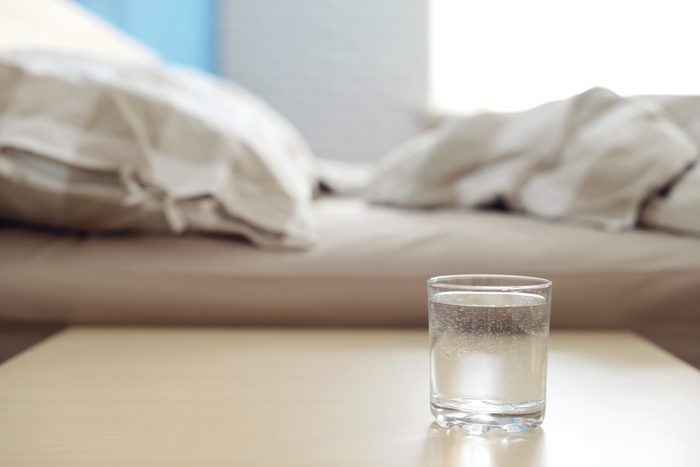
Tamp down hot flashes
“If you wake up with hot flashes, of course you should keep the room cool and wear layered sleep clothing. But also keep a glass of ice water by the bed; sipping it will help lower your body temperature so you can get back to sleep.” — Becky Wang-Cheng, MD, internist, Kettering, Ohio and co-editor of Menopause

Avoid anti-sleeping pills
“A lot of people take bedtime pain relievers that contain caffeine and don’t even realize it. Excedrin has 65 milligrams of caffeine per tablet—if you take two, that’s as much as a cup of coffee. Check the label: Caffeine is always listed as an active ingredient.” — Jan Engle, professor of pharmacy at the College of Pharmacy, University of Illinois at Chicago
“An oral decongestant might help you breathe better, but it can increase your heart rate, which makes it hard to sleep. A nasal decongestant can rev you up too. At night, try a saline spray or wash instead.” — Eric Alvarez, pharmacist, Miami
